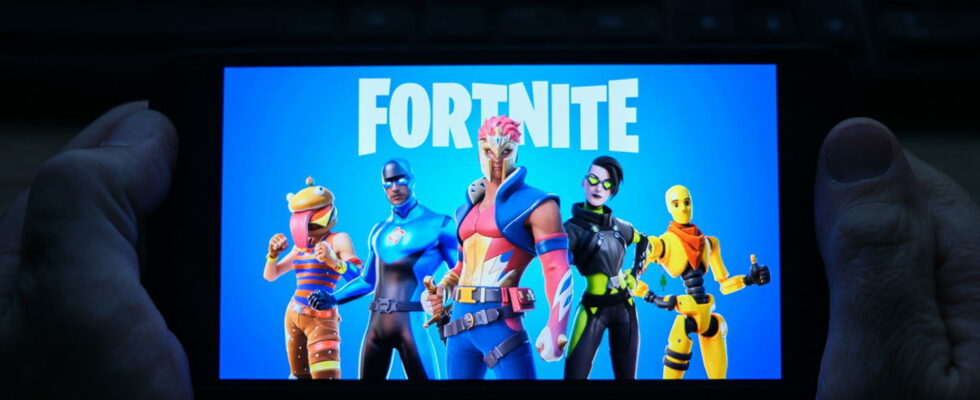Around twenty associations, including UFC-Que Choisir, have filed a complaint against 7 video game publishers due to misleading commercial practices. The cause: the virtual currency system of games such as Fortnite, Minecraft or Diablo IV.
Virtual currencies are quite common in video games these days – you could even say they are commonplace! It’s quite simple: they are used in 42% of the most played games on PC and 81% of the most popular mobile games. They allow you to convert your money into a virtual currency that can only be spent in the game, in order to buy various items, equipment or costumes (skins) – this is what we call microtransactions. This is the case, for example, of Robloxwhere packs to win characters, digital clothing and items can be purchased using a virtual currency called Robux, which can itself be purchased with real euros.
But this system is not free from excesses. Also, in a press release issued on September 12, 2024around twenty European consumer associations, including UFC-Que Choisir and the National Association of Consumers and Users (CLCV), have decided to file a complaint with the European Commission and the network of consumer protection authorities – the European Commission and the Fraud Prevention and Control Commission (DGCCRF) in France – against seven of the most popular publishers (Fortnite, EA Sports FC 24, Minecraft, Clash of Clans, Roblox) For “deceptive commercial practices”They particularly criticize the use of virtual currencies which would push players to spend “always more”.
Virtual Currency: Deceptive Commercial Practices
The seven publishers are accused of hiding the true price of items available in their virtual stores, preventing players from “calculate precisely how much their spending on virtual currency really cost them”. In fact, tokens and other virtual coins are usually offered in packs and the exchange rate varies depending on the number of coins.
UFC-Que Choisir looked at how much several objects found in different popular games cost, in order to compare them with the prices of virtual currency packs. Each time, it is necessary to pay more than the real price of the object. For example, the game Clash of Clans offers six different “Gems” packs for purchase. The cheapest contains 80 gems for €1.19, and the most expensive 14,000 for €119.99. In other words, 10 gems cost between 9 and 15 euro cents. It is difficult under these conditions to calculate precisely what you pay for the item in the end.
In addition, it is very rare that a single pack is enough to buy the coveted item, which in fact increases its price. In Clash of Clansit is possible to buy a “1-week Protection Shield” for 250 gems. At best, you will have to buy 320, which is a 28% increase in price. In Fortniteyou have to buy a pack of 1,000 V-bucks to get the “hero shell” displayed at 400 V-bucks. So that’s 2.5 times the displayed price. Depending on the game, the price increase can be as much as 150%!
If the remaining amount of virtual currency is not lost, it will often be insufficient to obtain a new item. Therefore, this mechanism encourages the purchase of other packs in order to make up for lost money and thus obtain other items later. “It will therefore be necessary to recharge the virtual currency wallet, which could create a real vicious circle”notes UFC-Que Choisir. This system is really problematic, especially since some games target a particularly young, and therefore vulnerable, community.
Virtual currency: 7 major video game publishers in the crosshairs
Marie-Amandine Stévenin, president of UFC-Que Choisir, believes that “Consumers should not have to guess how much they are spending on a video game. Virtual currencies, by hiding the true cost of purchases, trap consumers in an opaque system that pushes them to spend more and more. It is time for authorities to protect players’ rights by forcing game publishers to comply with price transparency rules”.
“The situation is urgent” for Jean-Yves Mano, president of the National Association for the Defense of Consumers and Users (CLCV), “especially since younger players, who do not have a sufficiently developed financial awareness, constitute a prime target for these publishers”.
As a result, UFC-Que Choisir, CLCV and their European equivalents are filing a complaint against these seven video game publishers:
- Activision Blizzard (Diablo IV)
- Electronic Arts (EA Sports FC 24)
- Epic Games (Fortnite)
- Mojang Studios (Minecraft)
- Roblox Corporation (Roblox)
- Supercell (Clash of Clans)
- Ubisoft (Tom Clancy’s Rainbow Six Siege)
The group of associations demands that European and national authorities put an end to the commercial practices denounced by sanctioning these publishers, and that they impose better information for consumers, in particular by expressing “in real currency” the price of objects sold within games. More generally, the idea is to ban paid virtual currencies “which deliberately distort the playful nature of video games”.
Virtual currency: young players as the first victims
This is not the first time that games of this type have been criticized. In 2022, Epic Games was fined a record $520 million due to a lack of protection of the personal data of underage players and questionable business practices in Fortnite (see our article). Indeed, the in-game purchasing system strongly encouraged young people, using dark patterns, to buy items in the game with a simple click of the mouse or a tap of the finger, and this without their parents’ consent.
Same thing on the side of Roblox, which has been repeatedly criticized for exposing minor players to adult content, its economic model which, based on community creation, leads to the unsupervised work of children, and its gaming systems pushing for purchases. Children have thus found themselves with bills of several thousand euros (see our article)! And that’s without counting that such systems make the youngest players the ideal target for cybercriminals, who aim for the parents’ bank card…

